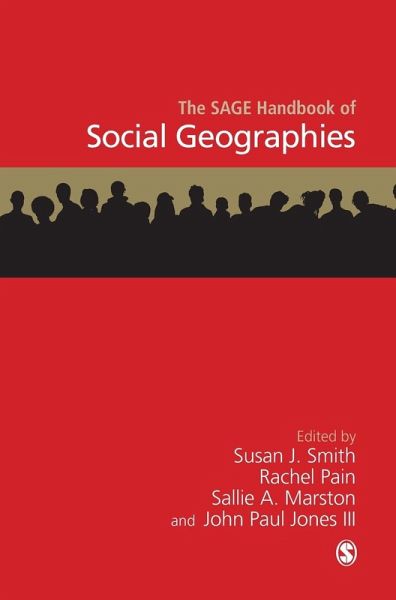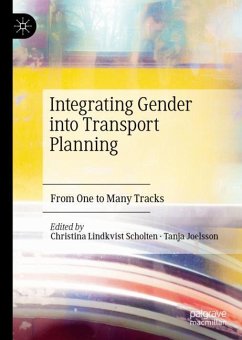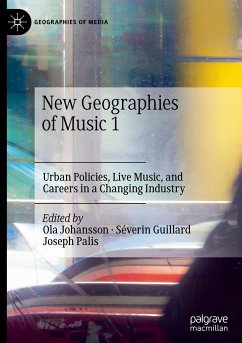
The SAGE Handbook of Social Geographies

PAYBACK Punkte
81 °P sammeln!
"With clarity and confidence, this vibrant volume summons up 'the social' in geography in ways that will excite students and scholars alike. Here the social is populated not only by society, but by culture, nature, economy and politics." - Kay Anderson, University of Western Sydney "This is a remarkable collection, full of intellectual gems. It not only summarises the field of social geography, and restates its importance, but also produces a manifesto for how the field should look in the future." - Nigel Thrift, Vice-Chancellor, University of Warwick "The book aims to be accessible to student...
"With clarity and confidence, this vibrant volume summons up 'the social' in geography in ways that will excite students and scholars alike. Here the social is populated not only by society, but by culture, nature, economy and politics." - Kay Anderson, University of Western Sydney "This is a remarkable collection, full of intellectual gems. It not only summarises the field of social geography, and restates its importance, but also produces a manifesto for how the field should look in the future." - Nigel Thrift, Vice-Chancellor, University of Warwick "The book aims to be accessible to students and specialists alike. Its success lies in emphasizing the crossovers between geography and social studies. The good editorial work is evident and the participating contributors are well-established scholars in their respective fields." - Miron M. Denan, Geography Research Forum "An excellent handbook that will attract a diversity of readers. It will inspire undergraduate/postgraduate students and stimulate lecturers/researchers interested in the complexity and diversity of the social realm.... As the first of its kind in the sub-discipline, it is a book that is enjoyable to read and will definitely add value to a personal or library collection." - Michele Lobo, New Zealand Geographer The social relations of difference - from race and class to gender and inequality - are at the heart of the concept of social geography. This handbook reconsiders and redirects research in the discipline while examining the changing ideas of individuals and their relationship with structures of power. Organised into five sections, the SAGE Handbook of Social Geographies maps out the 'connections' anchored in social geography. * Difference and Diversity builds on enduring ideas of the structuring of social relations and examines the ruptures and rifts, and continuities and connections around social divisions. * Geographies and Social Economies rethinks the sociality, subjectivity and placement of money, markets, price and value. * Geographies of Wellbeing builds from a foundation of work on the spaces of fear, anxiety and disease towards newer concerns with geographies of health, resilience and contentment. * Geographies of Social Justice connects ideas through an examination of the possibilities and practicalities of normative theory and frames the central notion of Social geography, that things always could and should be different. * Doing Social Geography is not exploring the 'how to' of research, but rather the entanglement of it with practicalities, moralities, and politics. This will be an essential resource for academics, researchers, practitioners and postgraduates across human geography.














